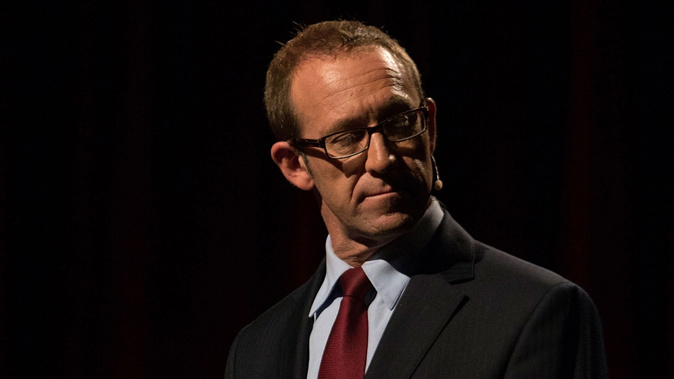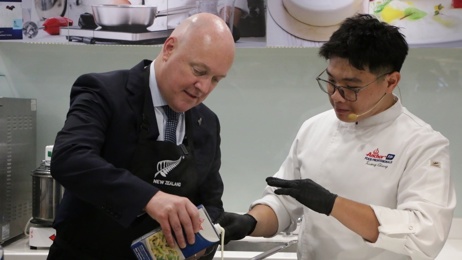
Labour’s education policy announced over the weekend certainly looks like a fresh new idea amongst a dearth of old catchphrases and worn-out platforms. But is that really the case? James Robins takes a look.
The ink had dried, the byline was signed, and a title had been formed. The column was called ‘Triumph of the Nil’, an excoriating piece of guttersniping in which I took aim at the spate of bland, clichéd, and plodding ‘State of the Nation’ speeches which marked this country’s return from political vacation.
I took umbrage at Winston Peters’ incessant race-baiting clothed in the language of populism (his return to Orewa, the scene of Don Brash’s undoing in 2004, was engineered to evoke). I saw nothing but empty rhetoric in John Key’s speech on Tuesday. Bar the funding of Auckland’s City Rail Link (a project National ministers had jeered at from day one – was this not one of those ubiquitous “u-turns”?), it contained nothing unexpected and proved once again the existence of a void where the government’s original ideas ought to be. The Greens maintained the status quo, which was strange considering Metiria Turei’s devotional belief that her party was still “radical”.
Then Sunday arrived. With it came the enjoyable thought of Labour’s Wellington contingent peeling off sunburnt skin listening to their leader growl away in a park across the road from the University of Auckland. Certainly not promising surroundings, especially given last year’s ‘State of the Nation’ speech - Andrew Little’s first - was hosted inside the postmodern nightmare of an Australian bank’s waterfront headquarters. That speech drooled over “small business” and “entrepreneurs”, prefiguring a steady shift to the centre.
Labour’s Sunday picnic packed something more surprising. Timed perfectly to coincide with Little’s arrival on the podium, the media began running a bold headline: “Labour promises free tertiary education”.
The policy had something of a shocking quality. It was the first real idea to emerge since Little’s ascendancy to the leadership of a fractured party (and Labour’s fault lines were still clearly visible that day after Phil Goff and David Shearer’s dissent from a caucus-agreed anti-TPP position). The last year had been spent vacillating between a position of strength (whereby MPs could call out the government’s failures on social bonds, the Iraq troop deployment, or refugees) and floundering ill-discipline (witness the terrifying way they were out-manoeuvred on the addition of Red Peak to the flag referendum). A plan to fund three years’ worth of tertiary education for any citizen regardless of age came without caveat - certainly the boldest piece of public policy in recent memory.
The scheme pulls the social ladder back down to ground level after it was so heartlessly pulled up in the mid-1980s and the introduction of neoliberalism to this country. That ideology (yes, ideology, contrary to the Right’s argument that capitalism’s survival post-1968 and 1989 marked the ‘End of History’) gutted free university education, burdening the rising generation – and every generation since – with the crippling reality of extortionate student loans. Labour’s pledge, should they somehow find themselves in power come 2017, restores some degree of openness back to a closed-shop education system. Contrary to National minister Steven Joyce’s spurious assertion that it would cost everything to “achieve nothing”, the grounding of a new generation in critical thinking and rigorous scholarship certainly has merit.
After Sunday, it looked like my ‘Triumph of the Nil’ piece might need to be binned (along with many others). Yet, glancing over its irrelevance, it prompted a rethink and an interesting thought: Wasn’t Labour’s pledge void of new ideas just like all the other political pontificators last week?
Little introduced his speech on Sunday with babble about “a time of renewal” and “our sense of future” and the “Kiwi Dream”. These lazy and meaningless quips are evidence of a stultified mind conforming to the consensus which governs the political spectrum. Clichéd language always marks a decay of original thinking. The pledge, after all, echoed Helen Clark’s 2005 promise of a student loan interest write-off. That promise buoyed the Labour ticket and returned them to power, largely thanks to apt timing. None of that prescience is present here. Two years out from an election, and even if it survives the Right’s hypocritical attacks (don’t forget these curmudgeons sailed into the elite on the magic carpet of free education), there is a very real chance the policy could be buried under the grey dust of time.
If the ‘free uni’ idea is the boldest scheme proposed in recent memory, it doesn’t reflect at all well on the condition of policy-making - the ‘State of the Nation’ if you like. In an age when far more radical measures are needed to combat and undo neoliberalism’s very tangible influence, Labour’s plan ought to be a mere starting point. It would be a better thing for Labour to consider this policy as the first of many means, not just the end.
Take your Radio, Podcasts and Music with you









